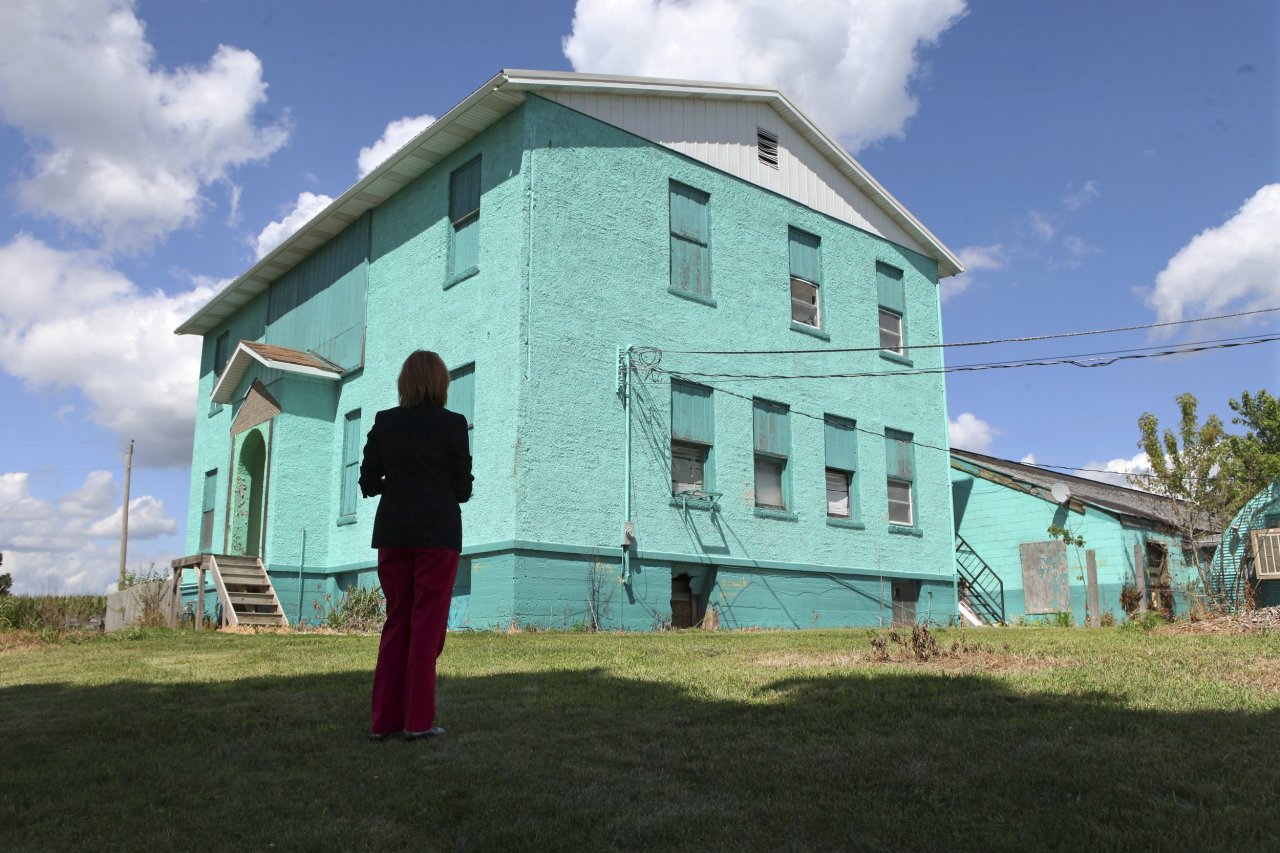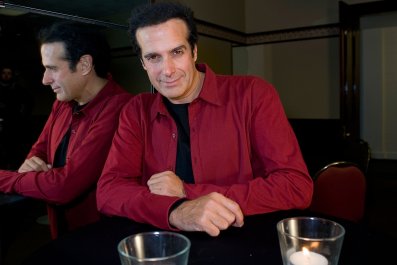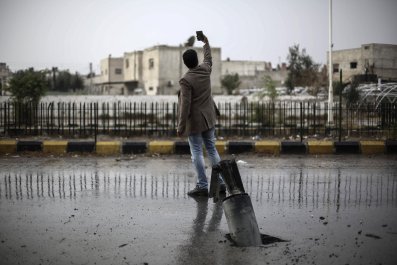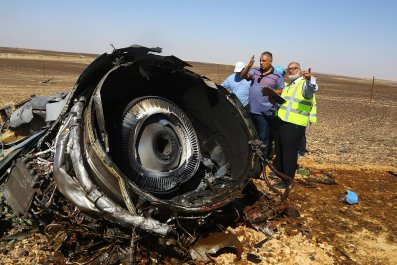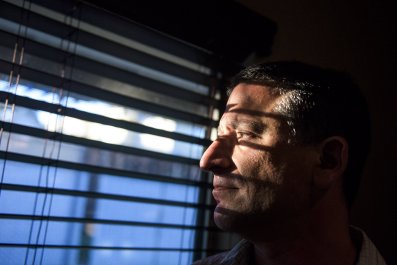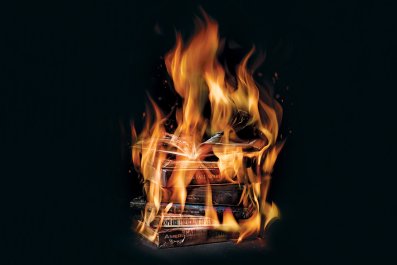Journalists are the gym teachers of the literary trade, disrespected by their more artistic peers who get to dwell in the sanctified realms of poetry and fiction, or at least the truth-lite purgatory that is "creative nonfiction." Even journalists hate other journalists, with Hunter S. Thompson deriding the profession as "a cheap catch-all for fuckoffs and misfits," while doing his best to remake the craft with his gonzo theatrics. His voice and vision were original enough to dispense with genre conventions; so were those of New Journalists like Tom Wolfe and Joan Didion. But the average beat reporter isn't likely to have the time or the expense account to head into the Mojave Desert with a saltshaker of blow or reflect languidly on Manson-era Los Angeles. The advent of the digital age, with emphasis on brevity and speed and Kim Kardashian's ass, has ensured that no serious and sane person wants to be anywhere near a newsroom. Meanwhile, we fuckups and misfits cling to our bylines as layoffs fell colleagues and shutter storied institutions.
Dan Barry, then, is a nearly extinct species: a journalist who knows how to write, paying attention to each sentence with a novelist's syntactic solicitude, eschewing the impulse to cram every paragraph with facts. His prose is instantly recognizable, three parts outer-borough machismo, one part classical ballet, with no evidence of the dull journalese lesser scribes use to fill column inches. For most of the last nine years, Barry has written the "This Land" column for The New York Times, with the mission, by the paper's description, to delve "into obscure and well-known corners of the United States." This often involves journeys into the past, whether to visit the man who played the coroner in the Wizard of Oz in Penney Farms, Florida, or to pay tribute to the last phone booth in Prairie Grove, Arkansas, but also into more immediate examples of national imperfection, whether in police brutality or our treatment of the disabled. His article, earlier this year, on the plight of the boxer Magomed "Mago" Abdusalamov, who suffered brain injuries during a fight at Madison Square Garden, is the finest blow-by-blow prose published in the Times in recent memory. I often think books I struggle to finish should have remained articles; this is one of the few articles that I want badly to become a book.
Barry does have a new book, and it is about damaged men, like poor Mago, failed and forgotten by society. The Boys in the Bunkhouse is based on a terrifically produced multimedia column he published in 2014. It is a story so unsettling you want to believe it is untrue: For more than four decades, as many as 60 men were forced to work at a turkey processing plant in Atalissa, Iowa. They lived together in a squalid 1911 schoolhouse, earning as little as 70 cents an hour eviscerating turkeys, a job Barry describes as unstintingly miserable: "The din, the feathers, the blood, the guts."
The men's lives outside the plant were hardly a respite. After work, they would be "summoned to the gymnasium to be lectured by a supervisor on that day's performance." Those who'd committed errors were "made to stand in a corner of the gym. Sometimes, you'd see two or three of them with noses pressed against the cold wall, mortified."
Barry tells me he first learned about the story in 2013, when he saw that the men who worked at the Henry's Turkey Service plant had been awarded $240 million in damages by the courts, four years after the house was visited by social workers and its occupants finally rescued.
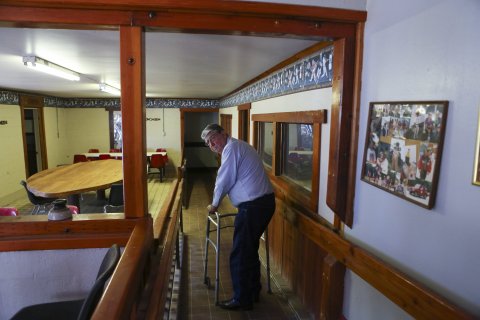
Barry interviewed about a dozen of the plaintiffs, 28 of whom live in Iowa and Texas and elsewhere (four others have died). His book opens with the story of Willie Levi, who moves through the turkey plant "like some Astaire of slaughter." Levi is one of the book's few black subjects, but he otherwise shares a biography nearly identical with that of the other bunkhouse boys. All suffering from severe mental disabilities, they were plucked out of state institutions in Texas by T.H. Johnson, who thought that a life of menial labor on his turkey farm would give them the only meaning they could hope for in the modern world. Many agreed. Dr. Walter Alvarez praised Johnson's program in a newspaper column: "A mentally retarded person is happiest in a job which does not require a lot of thinking and planning," he wrote in the late 1960s.
In other words, none of this was secret. It was no secret either when the men were moved en masse to rural Iowa, a place to which they had no ties but where Johnson wanted to do business. The schoolhouse where they lived was a hovel filled with cockroaches. Though they were sometimes treated to prostitutes, they received no medical care. One of the turkey workers tried to escape (the degree of confinement varied over the years, as did the precise conditions of that confinement). He froze to death. One man who worked at the plant for 35 years left the plant with $87.96 in savings.
"There were probably good intentions at play in the beginning," Barry tells me. The people in Atalissa seemed to like the men and treat them kindly, but they somehow never inquired too deeply about what went on high on the hill, sort of like the Poles during World War II who didn't question the smoke arising from the barbed wire–enclosed camps in the woods. That only bolsters the famous Hemingway assertion that all wickedness arises from innocence.
Barry treats the steady slide into hellishness—one resident made to eat jalapeño peppers, another to walk in circles while holding weights—without melodrama, but also without turning his book into a legal brief. The weight of his research is under the surface, never casting shadows over the lucid prose. And while Barry clearly conducted a thorough investigation, he makes no effort to downplay the work of Iowa journalists who got the story long before he did. Social workers, too easily dismissed in the public imagination as myopic bureaucrats, were also on the case. One, named Ed George, typed out a furious report in 1974: "The idea of implementing any program like this in Iowa is obscene," he wrote. "There is absolutely nothing worth saving about their program."
That program continued for another 35 years.
The Boys in the Bunkhouse eschews easy outrage while maintaining a moral purpose. It is evidence, in all the good ways, that Barry has not forgotten his education at St. Anthony's, a Franciscan high school on Long Island. Not only because there is often a crusading quality to his work but also because of the hard, Latinate grace that marks his prose, familiar to all who fought their way through the language's ancient declensions . It is odd to say so, but this book about disabled men who gutted turkeys is a pleasure to read.
Barry attended St. Bonaventure University, then worked as a journalist in Connecticut and Rhode Island, where he and other reporters won a Pulitzer Prize in 1994 for exposing corruption in the courts. His road to the Times was long, but working at smaller outlets let him craft his voice, one free of paper-of-record pretensions. It is a testament to his current editors that they have allowed him to use that voice, instead of burying it in a litany of to be sures and cannot help buts. That they have allowed him to tell stories instead of merely reporting the news.
The Boys in the Bunkhouse is Barry's fourth book. Pull Me Up was a memoir that dealt, in part, with his cancer diagnosis. Bottom of the 33rd was about the longest game in baseball history, while City Lights collected his writings about New York. When we spoke, I told him that I wanted his next book to be about Mago, the comatose boxer. If he doesn't write it, someone else will, and unless A.J. Liebling returns from the great beyond, the result will be inferior.
Barry says that today the subjects of Bunkhouse "are doing a lot better," though he notes that many suffered from post-traumatic stress disorder when they were rescued. "These men were in various physical and emotional deterioration," he tells me. The schoolhouse where they lived has been torn down, while their $240 million settlement has been significantly reduced in legal wranglings. Barry believes that none has received any compensation.
Barry wrote that while "Iowa raged and wept over the plight of the men from the bunkhouse, the victims themselves seemed to exist only in the abstract." The Boys in the Bunkhouse is not just a book about the victims but also a book that turns those victims into real men. He has written them into history, as only a journalist could.



